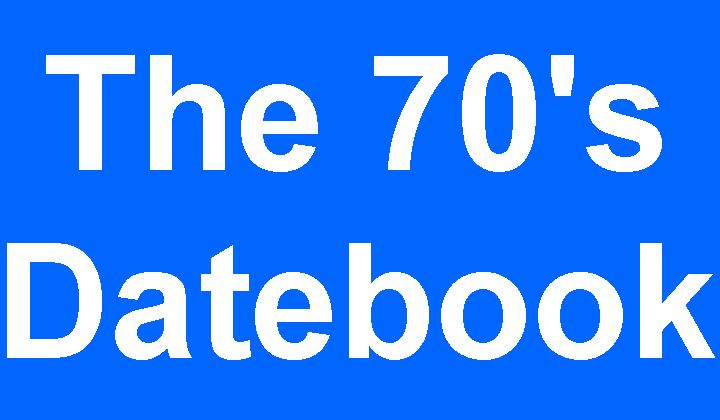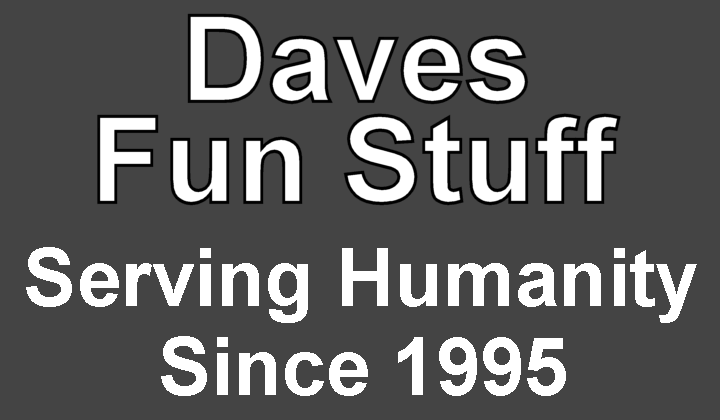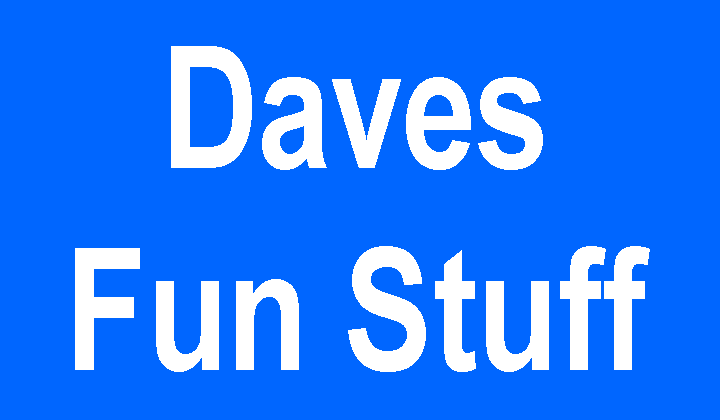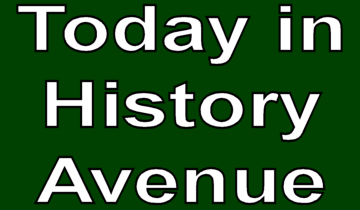 Home
DFS
SB
OD
SDN
DFSM
THP
Donate $5
Home
DFS
SB
OD
SDN
DFSM
THP
Donate $5
In 1972, The password is “hilarious.” Felix Unger and Oscar Madison were always perfectly mismatched. The two men — one a neurotic neatnik, the other a compulsive slob — had absolutely nothing in common except a Manhattan apartment. In “Password,” Felix (Tony Randall) and Oscar (Jack Klugman) make the worst team since oil and water. Oscarʹs notoriety as a sportswriter earns him an invitation to play on the TV game show Password as the popular game-show host Allen Ludden, who turns out to be a fan of Oscarʹs sports columns, approaches him to be a celebrity panelist in a celebrity match playing against Luddenʹs real-life wife, Betty White. Felix, who fancies himself a Password genius, is ecstatic; he can be his roommateʹs partner. Oscar takes some convincing from Felixʹs whining and wheedling — first to be on the show and then to be on it with Felix — but he finally agrees. As bad choices go, this is right up there with Lincolnʹs decision to go to Fordʹs Theater. Practicing at their apartment, Oscar and Felix are totally in sync. but when they get to the studio, itʹs another story entirely. The password is gravy. Whiteʹs clue: “Sauce.” Her partner guesses “Mayonnaise.” Oscar, confidently, turns to Felix. “Meat,” he suggests, using his hands for emphasis. Felix responds, “Lincoln,” a bizarre non sequitur that leaves host Allen Ludden and the rest of the panel dumbfounded. Felix explains: “Itʹs a known fact that Lincoln loved mayonnaise!” Didnʹt we just mention the Great Emancipator earlier? Next, itʹs Felixʹs turn to give the clue; the password is bird. “Aristophanes,” he ventures, explaining after theyʹve lost that Aristophanes wrote the play The Birds. “No more Greek clues!” a furious Oscar shouts at Felix. “Aristophanes is ridiculous!” The next password: ridiculous. Oscar looks hard at Felix and growls, “Aristophanes.” Felix thinks and puts two and two together. “Ridiculous!” he shouts with glee, bouncing up and down. Itʹs a wonderfully witty setup to a classic sitcom moment, the point at which the odd couple finally gets even. The pairʹs utter failure to communicate finds its fullest, most sidesplitting expression in this sparkling episode. The game show segements within this program were fully scripted and the outcome pre-arranged.
In 1972, Wings release “Hi, Hi, Hi” in United Kingdom.
In 1972, “Loggins and Messina” album by Loggins and Messina was released
In 1974, TWA Flight 514, a Washington-bound Boeing 727, crashed in Virginia after being diverted from National Airport to Dulles International Airport; all 92 people on board were killed. On the same day, Northwest Orient Airlines Flight 6231, a Boeing 727, crashed near Stony Point, New York, with the loss of its three crew members (the plane had been chartered to pick up the Baltimore Colts football team in Buffalo, New York).
In 1975, As the World Turns stopped doing the show live. It was the last soap to do so.
In 1975, CBS aired the first 60-minute episode of As the World Turns, the first daytime soap opera on the "Eye Network" to expand from the half-hour format.
In 1975, The Edge of Night, which had aired on CBS since its 1956 premiere, debuted on ABC with a 90-minute special episode.
In 1975, “Gratitude” album by Earth, Wind and Fire was released
In 1975, “The Edge Of Night”, TV Daytime Soap; moved to ABC while “As The World Turns” expanded to an hour on CBS filling up “Edge”'s former 30-minute slot there.
In 1976, (NOTE NATURE OF THE STORY) The Sex Pistols, who have just released their first single, “Anarchy in the U.K.,” appear on British TVʹs “Today Show” as a last-minute replacement for Queen. Interviewer Bill Grundy, taunting them about their “nasty” reputation, provokes bass player Glenn Matlock to say the F-word on the air. In the resulting uproar, the Sex Pistols are banned from appearing in all but five cities on the itinerary of their first United Kingdom tour. By next month, no club or concert hall in Great Britain will book the group. The press branded the band “rotten punks”, making them the symbol for “punk rock”.
In 1976, NBC launches Michael Constantine as a night-court judge in “Sirotaʹs Court.” The judge will hear cases only until April. There would be another night court judge on NBC in 1984.
In 1976, “C.P.O. Sharkey” and “The McLean Stevenson Show” debut on NBC.
In 1977, Billy Joelʹs fifth album, “The Stranger,” becomes his vehicle to stardom, making it to number two and containing the hits “Just the Way You Are,” “Sheʹs Always a Woman,” “Movin' Out” and “Only the Good Die Young.” It was also certified Gold by the RIAA
In 1977, “Pinwheel” was launched on a QUBE cable system (which also launched with 29 channels that same day) channel C-3 in Columbus, Ohio. Pinwheel would become the cornerstone for the Nickelodeon channel that would be launched on April 1, 1979.
In 1977, COVER OF ROLLING STONE STEVE MARTIN
In 1977, HOT NEW MOVIES “THE GOODBYE GIRL” (Richard Dreyfuss, Marsha Mason); “CLOSE ENCOUNTERS OF THE THIRD KIND” (Richard Dreyfuss, Teri Garr, Francois Truffault)
In 1978, British new wave music-hall rocker Ian Dury releases his biggest hit single “Hit Me with Your Rhythm Stick.” It will reach number one in the United Kingdom and sell two million copies worldwide without entering the U.S. chart. A lyric from that song can be heard on “Bras On 45” by Ivor Biggun and The D. Kups
In 1979, R.C., “Dreaming” by Blondie peaked at #27 on the pop singles chart.
In 1979, The Movie Channel pay network was launched.
In 1979, “Coward Of The County” by Kenny Rogers entered the Top 40 chart.
In 1979, “Fred and Barney Meet The Thing”, TV Cartoon Show, last aired on NBC.
In 1979, “The New Shmoo”, TV Cartoon Show; last aired on NBC.
In 1970, "Yousuf Khan Sher Bano (Pakistan)" was released by United Arts; Aziz Tabassum (director); Ali Haider Joshi (screenplay); Yasmin Khan, Badar Munir, Nemat Sarhadi
In 1971, "Born to Win" was released by United Artists; Ivan Passer (director/screenplay); George Segal, Paula Prentiss, Karen Black, Héctor Elizondo, Robert De Niro, Marcia Jean Kurtz, Burt Young, Jose Perez, Sylvia Syms, Paul Benjamin, Jay Fletcher, Ed Madsen, Irving Selbst; Black Comedy; Thriller, Crime, Drama; Live Action
In 1971, "Chandler" was released by Metro-Goldwyn-Mayer; Paul Magwood (director); John Sacret Young (screenplay); Warren Oates, Leslie Caron, Alex Dreier, Marianne McAndrew, Mitchell Ryan, Gordon Pinsent, Charles McGraw, Walter Burke, Richard Loo, Gloria Grahame, Scatman Crothers, John Mitchum, Ray Kellogg; neo-noir, Crime, Drama; Live Action
In 1973, “Be” by Neil Diamond peaked at number 34 on the U.S. pop singles chart.
In 1979, “Broken-Hearted Me” by Anne Murray peaked at number 12 on the U.S. pop singles chart.
In 1979, “Dreaming” by Blondie peaked at number 27 on the U.S. pop singles chart.
In 1973, “Fell For You” by The Dramatics peaked at number 45 on the U.S. pop singles chart.
In 1973, “Frisky” by Sly and The Family Stone peaked at number 79 on the U.S. pop singles chart.
In 1979, “Get It Up” by Ronnie Milsap peaked at number 43 on the U.S. pop singles chart.
In 1973, “Having A Party” by Ovations peaked at number 56 on the U.S. pop singles chart.
In 1973, “I Don't Know What It Is But It Sure Is Funky” by Ripple peaked at number 67 on the U.S. pop singles chart.
In 1979, “I Just Can't Control Myself” by Nature's Divine peaked at number 65 on the U.S. pop singles chart.
In 1979, “If You Remember Me” by Chris Thompson and Night peaked at number 17 on the U.S. pop singles chart.
In 1979, “If You Want It” by NiteFlyte peaked at number 37 on the U.S. pop singles chart.
In 1973, “It's All Over” by Independents peaked at number 65 on the U.S. pop singles chart.
In 1973, “Let Me Serenade You” by Three Dog Night peaked at number 17 on the U.S. pop singles chart.
In 1973, “My Old School” by Steely Dan peaked at number 63 on the U.S. pop singles chart.
In 1979, “Pretty Girls” by Melissa Manchester peaked at number 39 on the U.S. pop singles chart.
In 1973, “Rock and Roll (I Gave You The Best Years Of My Life)” by Kevin Johnson peaked at number 73 on the U.S. pop singles chart.
In 1979, “Ships” by Barry Manilow peaked at number 9 on the U.S. pop singles chart.
In 1979, “The Shape Of Things To Come” by The Headboys peaked at number 67 on the U.S. pop singles chart.
In 1973, “There Ain't No Way” by Lobo peaked at number 68 on the U.S. pop singles chart.
In 1979, “Too Late” by The Shoes peaked at number 75 on the U.S. pop singles chart.
In 1973, “Top Of The World” by The Carpenters peaked at number 1 on the U.S. pop singles chart.
In 1979, “What Can I Do With This Broken Heart” by England Dan and John Ford Coley peaked at number 50 on the U.S. pop singles chart.
In 1979, “Babe” by Styx peaked at number 1 on the Canada pop singles chart.
In 1979, “Come To Me” by France Joli peaked at number 15 on the Canada pop singles chart.
In 1979, “Don't Stop 'til You Get Enough” by Michael Jackson peaked at number 3 on the Canada pop singles chart.
In 1979, “Girls Talk” by Dave Edmunds peaked at number 18 on the Canada pop singles chart.
In 1979, “Hold On, I'm Coming” by Karen Silver peaked at number 72 on the Canada pop singles chart.
In 1979, “Midnight Music” by Martin Stevens peaked at number 50 on the Canada pop singles chart.
In 1973, “Paper Roses” by Marie Osmond peaked at number 12 on the Canada pop singles chart.
In 1973, “Redneck Friend” by Jackson Browne peaked at number 87 on the Canada pop singles chart.
In 1979, “Switchboard Susan” by Nick Lowe peaked at number 81 on the Canada pop singles chart.
In 1973, “The Love I Lost” by Harold Melvin and The Blue Notes peaked at number 31 on the Canada pop singles chart.
In 1973, “Vado Via” by Drupi peaked at number 82 on the Canada pop singles chart.
In 1973, “Why Me?” by Kris Kristofferson peaked at number 19 on the Canada pop singles chart.
In 1973, “You're A Special Part Of Me” by Diana Ross and Marvin Gaye peaked at number 25 on the Canada pop singles chart.
In 1979, “Complex” by Gary Numan peaked at number 6 on the U.K. pop singles chart.
In 1979, “Confusion / Last Train To London” by Electric Light Orchestra peaked at number 8 on the U.K. pop singles chart.
In 1979, “Crawling From The Wreckage” by Dave Edmunds peaked at number 59 on the U.K. pop singles chart.
In 1979, “Diamond Smiles” by The Boomtown Rats peaked at number 13 on the U.K. pop singles chart.
In 1979, “Get Up and Boogie” by Freddie James peaked at number 54 on the U.K. pop singles chart.
In 1979, “It's A Disco Night (Rock Don't Stop)” by The Isley Brothers peaked at number 14 on the U.K. pop singles chart.
In 1973, “My Coo-Ca-Choo” by Alvin Stardust peaked at number 2 on the U.K. pop singles chart.
In 1979, “No More Tears (Enough Is Enough)” by Barbra Streisand and Donna Summer peaked at number 3 on the U.K. pop singles chart.
In 1979, “One Step Beyond...” by Madness peaked at number 7 on the U.K. pop singles chart.
In 1979, “Rockabilly Rebel” by Matchbox peaked at number 18 on the U.K. pop singles chart.
In 1979, “Sarah” by Thin Lizzy peaked at number 24 on the U.K. pop singles chart.
In 1979, “Send One Your Love” by Stevie Wonder peaked at number 52 on the U.K. pop singles chart.
In 1979, “The Long Run” by The Eagles peaked at number 66 on the U.K. pop singles chart.
In 1973, “When I Fall In Love” by Donny Osmond peaked at number 4 on the U.K. pop singles chart.
In 1973, “Why Oh Why Oh Why” by Gilbert O'Sullivan peaked at number 6 on the U.K. pop singles chart.
In 1979, 😉🤣 “The Smurf Song / The Magic Flute Smurf” by Father Abraham and The Smurfs peaked at number 22 on the Australian pop singles chart.
In 1979, “Angel Eyes / My Little Girl” by Roxy Music peaked at number 89 on the Australian pop singles chart.
In 1973, “Dancin' (On a Saturday Night) / New Day” by Barry Blue peaked at number 2 on the Australian pop singles chart.
In 1973, “I'm The Leader Of The Gang (I Am!) / Just Fancy That” by Gary Glitter peaked at number 11 on the Australian pop singles chart.
In 1979, “Lady Lynda / Full Sail” by The Beach Boys peaked at number 54 on the Australian pop singles chart.
In 1979, “Maybe / Friends” by Thom Pace peaked at number 23 on the Australian pop singles chart.
In 1979, “Out Of The Blue (EP)” by The Angels (Australia) peaked at number 29 on the Australian pop singles chart.
In 1973, “Rock and Roll (I Gave You The Best Years Of My Life) / There's Nothing I Would Rather Do” by Kevin Johnson peaked at number 8 on the Australian pop singles chart.
In 1979, “You Ain't Going Nowhere Without Me / Now You're On Your Own” by Doug Parkinson and The Southern Star Band peaked at number 70 on the Australian pop singles chart.
In 1979, “Get Your Love Right” by Jon English peaked at number 3 on the New Zealand pop singles chart.
In 1979, “Jezebel” by Jon Stevens peaked at number 1 on the New Zealand pop singles chart.
In 1979, “Rise” by Herb Alpert peaked at number 5 on the New Zealand pop singles chart.
In 1979, “Sure Know Something” by KISS peaked at number 11 on the New Zealand pop singles chart.
In 1979, “Laugh and Walk Away” by The Shirts peaked at number 10 on the Netherlands pop singles chart.
In 1973, “Meine Freunde sind die Träume” by Vicky Leandros peaked at number 22 on the Netherlands pop singles chart.
In 1973, “Schönes Mädchen aus Arcadia” by Demis Roussos peaked at number 1 on the Netherlands pop singles chart.
In 1973, “Sorrow” by David Bowie peaked at number 29 on the Netherlands pop singles chart.
In 1973, “Verliefd, verloofd, getrouwd” by Frank and Mirella peaked at number 19 on the Netherlands pop singles chart.
In 1979, “We Got The Whole World In Our Hands” by Nottingham Forest With Paper Lace peaked at number 2 on the Netherlands pop singles chart.
In 1973, “Wonderful” by Colin Blunstone peaked at number 10 on the Netherlands pop singles chart.
In 1979, “Gimme! Gimme! Gimme! (A Man After Midnight)” by ABBA peaked at number 2 on the Norway pop singles chart.
In 1973, “Showdown” by Electric Light Orchestra peaked at number 9 on the Norway pop singles chart.
In 1979, “Street Life” by The Crusaders With Randy Crawford peaked at number 6 on the Norway pop singles chart.
In 1979, “Heartache Tonight” by The Eagles peaked at number 10 on the Switzerland pop singles chart.
In 1973, “I'd Love You To Want Me” by Lobo peaked at number 1 on the Switzerland pop singles chart.
In 1973, “My Friend Stan” by Slade peaked at number 6 on the Switzerland pop singles chart.
In 1979, “Das Lied von Manuel” by Manuel and Pony peaked at number 5 on the Germany pop singles chart.
In 1979, “El Lute” by Michael Holm peaked at number 11 on the Germany pop singles chart.
© 1995-2026. davesfunstuff.com. All Rights Reserved. Reproduction of any part of this website without expressed written consent is prohibited.



